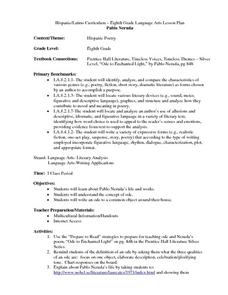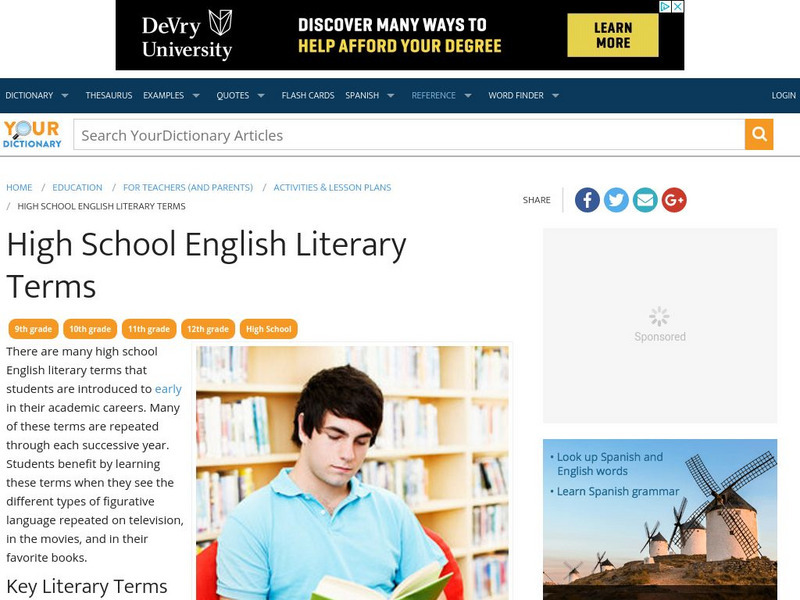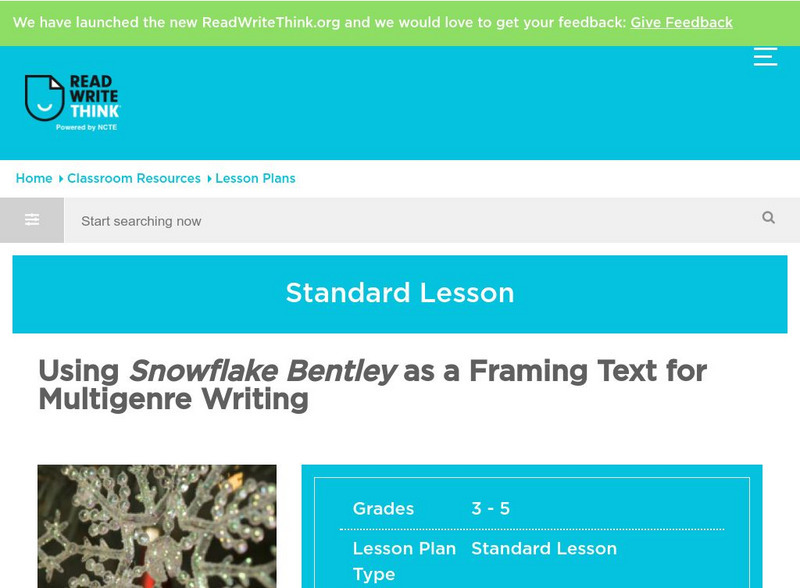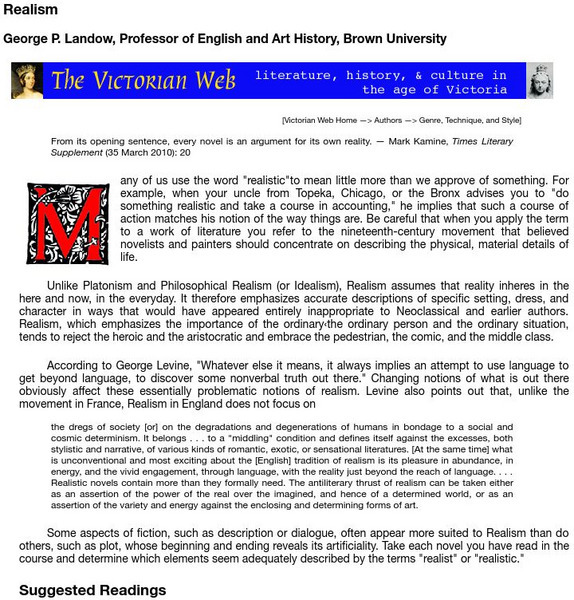West Corporation
Making Inferences – Use Your Mind to Read!
How can you tell if someone is happy? The lesson works with elementary and middle school scholars to activate their schema and pay attention to details to make inferences in their daily lives, poetry, and other literature. Cleverly...
Curated OER
The Legend of Sleepy Hollow
Students discuss and define folklore, locate town of Sleepy Hollow, NY, on map, calculate distance from Sleepy Hollow to their school, if applicable, review vocabulary list from The Legend of Sleepy Hollow, read story aloud, and write...
Curated OER
Pablo Neruda
Eighth graders explore the life and works of Pablo Neruda. They complete an author map concerning his personal and professional life. Students identify the key components of an ode. They write an ode to a common object around their...
Curated OER
???The Hell of Mirrors??? by Edogawa Rampo
Students read and analyze the story "The Hell of Mirrors," by Edogawa Rampo. They watch a video excerpt, answer discussion questions, construct a periscope, complete handouts, define key vocabulary terms, take a quiz, and write a book...
Curated OER
Eckstine, Stayhorn, and the Dorseys: Masters of Swing
Students explore the history of swing music. In this music history lesson, students research the Dorsey Brothers, Billy Eckstine, and William Strayhorn to learn about swing music. Students define swing, develop a timeline of events in...
Curated OER
Lyddie
Seventh graders read the novel, Lyddie, while studying the reform movement. They complete assignments for each chapter and write essays about Lyddie's development through the novel.
Curated OER
Autobiographical Postage Stamp
Students design a postage stamp that communicates to the world who they are, what they hope to be, what they are good at, and factual information. They use, "My Great Aunt Arizona" by Gloria Houston as a model for a biography.
Alabama Learning Exchange
Alex: Literary Genres: What Are They?
During this activity, students will be introduced to different literary genres. Once students become familiar with the different genres, they will decide which one they like to read best. They will also use their knowledge of genres to...
University of Victoria (Canada)
The U Vic Writer's Guide: Literary Term: Fable
The University of Victoria's English department gives a comprehensive definition of fables. Example included.
University of Victoria (Canada)
The U Vic Writer's Guide: Literary Term: Drama
The University of Victoria's English department gives a comprehensive definition of "drama" in writing.
Washington State University
Washington State University: Literary Movements: Captivity Narratives
This site contains definitions and analysis of American captivity narratives. Describes the conventions, rhetorical purposes, and themes of the captivity narrative genre. Lists example captivity narratives.
Rutgers University
Rutgers University: Glossary of Literary and Rhetorical Terms: Genre
Brief definition of the literary term.
Love To Know Media
Your Dictionary: High School English Literary Terms
This article focuses on a variety of key literary terms used in high school English including their definitions. These terms include flashback, genre, irony, parody, satire, setting, subplot, tone, and symbol.
Ted Nellen
Cyber English (By Ted Nellen): Literary Terms F R
The second of three pages of simple definitions for literary terms. This page, F - R, covers forty-seven terms from "Fable," to "Romance."
ReadWriteThink
Read Write Think: Using Snowflake Bentley as a Framing Text for Multigenre Writing
Using Snowflake Bentley as a model, students create a working definition of multigenre text and then use that definition to create their own multigenre piece about winter or another theme.
Ted Nellen
Cyber English (By Ted Nellen): Allegory
This is a glossary entry for the term "Allegory" including multiple definitions for the term, links to other figures of speech, links to more information, and examples.
Victorian Web
The Victorian Web: Realism
This Victorian Web site defines realism as used in literature and as a "nineteenth-century movement that believed novelists and painters should concentrate on describing the physical, material details of life."
















